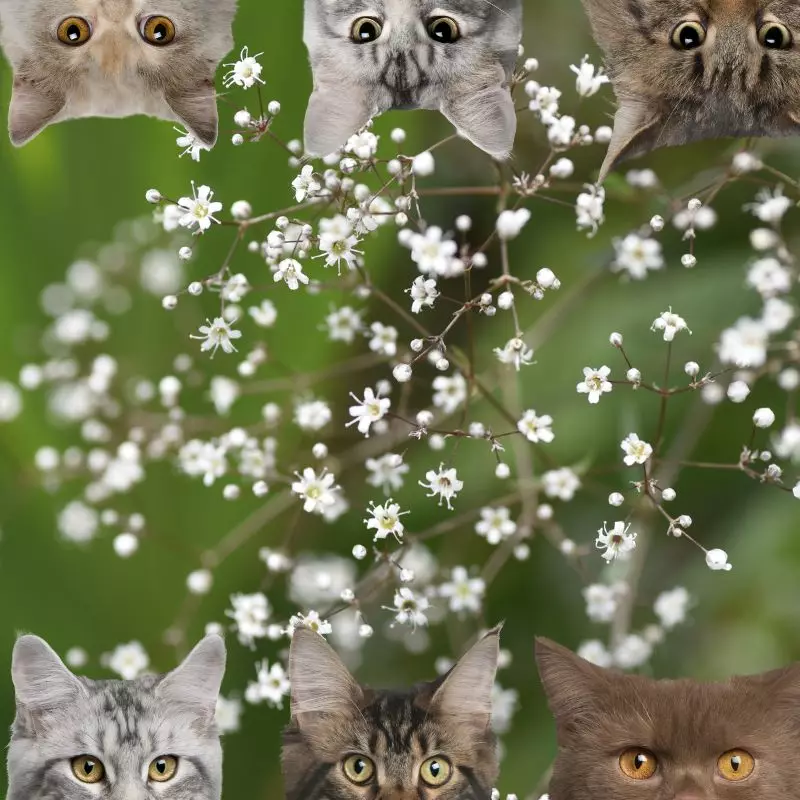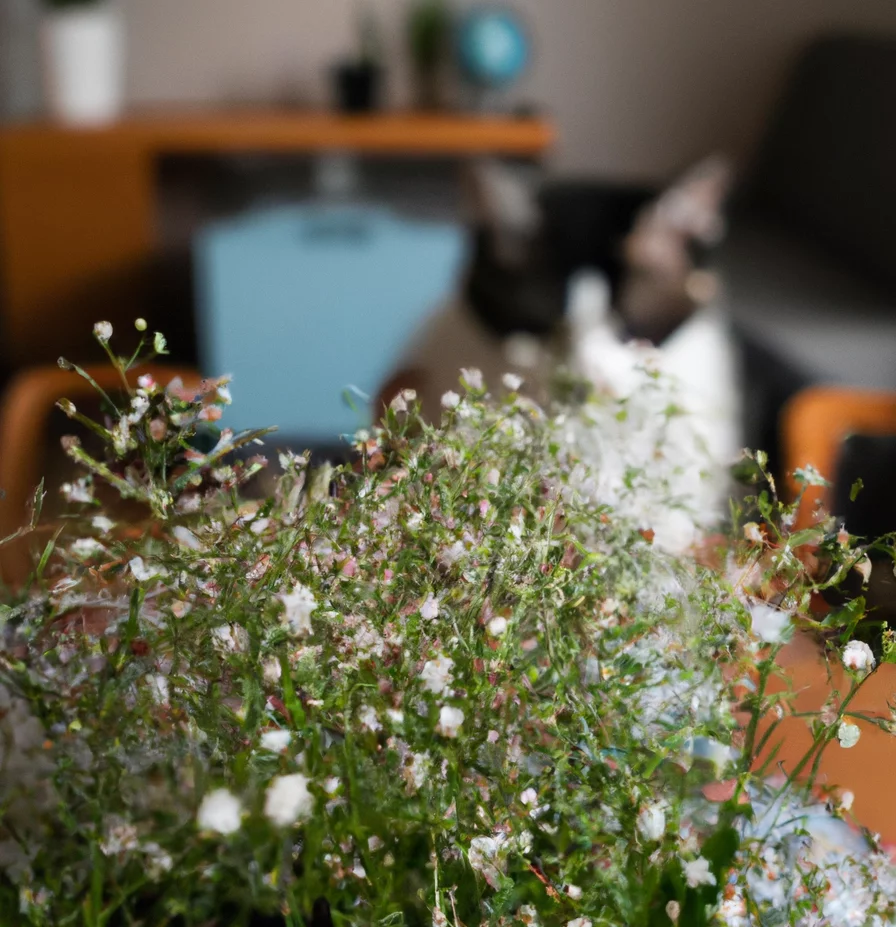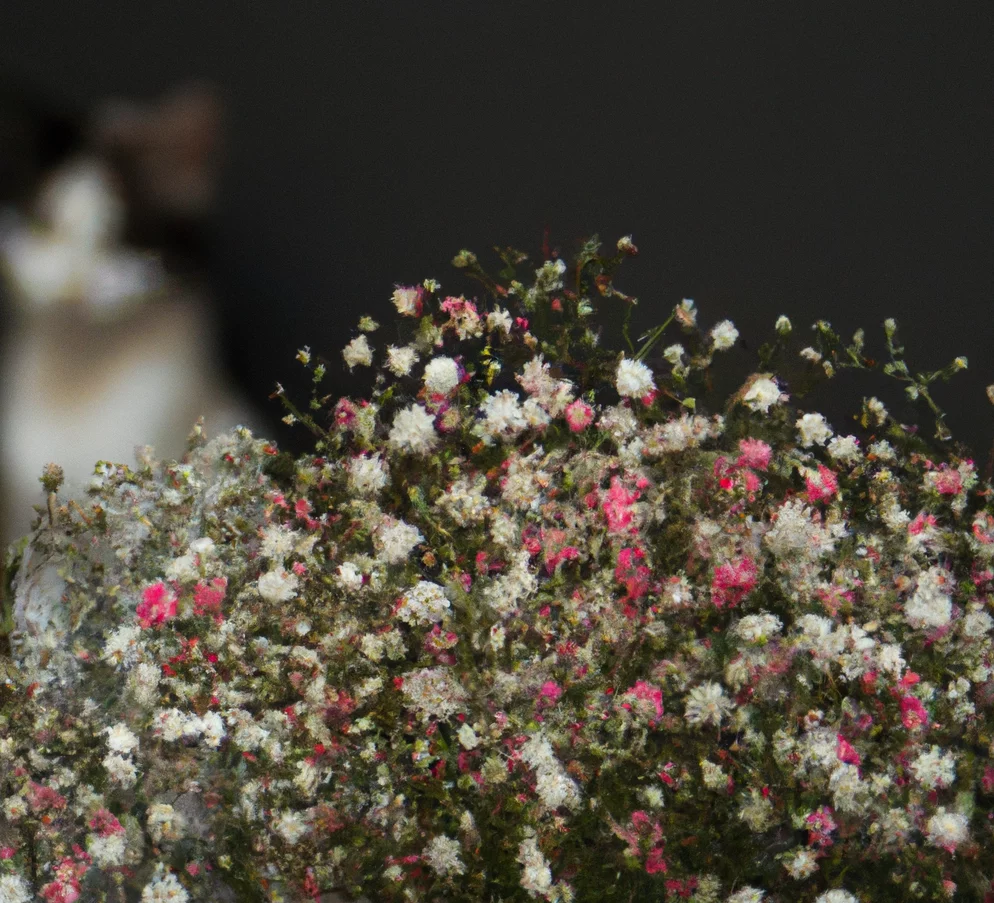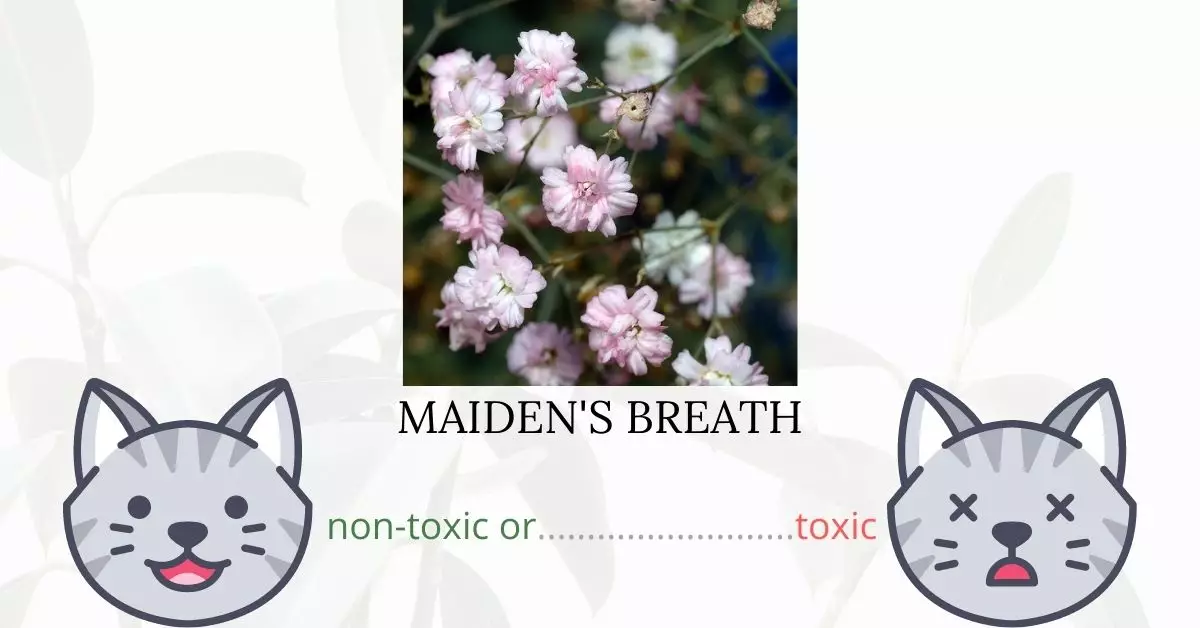Yes, Maiden’s Breath can be harmful to cats. Although not leading to severe or life-threatening symptoms, it’s advisable for cat owners to keep their felines away from this plant.
This article was meticulously crafted in collaboration with a team of experienced DVMs (doctors of veterinary medicine). Their insights, combined with our research from high-authority websites such as ASPCA and PetMD, ensure that we provide accurate and current details regarding the potential risks of various plants, specifically Maiden’s Breath, and their effects on cats.
Maiden’s Breath contains saponins, compounds that primarily protect the plant from small parasites. However, the detergent-like nature of these saponins makes them harmful to larger animals. When ingested, these toxins can irritate a cat’s skin and mouth and can cause discomfort and pain in the digestive tract. Contrary to some beliefs, although the Caryophyllaceae family, which Maiden’s Breath belongs to, often contains the toxic element gypsogenin, research confirms that Maiden’s Breath does not carry this particular toxin.
Clinical Signs of Maiden’s Breath Poisoning in Cats

When a cat comes into contact with, smells, or ingests Maiden’s Breath, it may display several clinical signs, each resulting from the specific toxins and compounds found in the plant. Here’s a closer look at the most common symptoms and the reasons behind their occurrence:
- Vomiting: Caused by the irritation of the cat’s gastrointestinal tract due to the plant’s saponins. The body’s natural reaction is to expel the harmful substance, leading to vomiting.
- Diarrhea: The saponins in Maiden’s Breath can disrupt the normal function of the cat’s intestines, causing increased water and mucus secretion, which can result in diarrhea.
- Excessive drooling: The irritation to the cat’s mouth and throat by the plant’s toxins can stimulate excessive saliva production as the body’s way of trying to soothe and protect the affected areas.
- Skin irritation: Direct contact with Maiden’s Breath can lead to contact dermatitis. This is because the saponins, with their detergent-like nature, can break down the protective barriers of the cat’s skin, causing irritation.
If you notice your cat exhibiting a combination of these signs after being around Maiden’s Breath, it’s essential to seek immediate medical care to ensure its well-being and prevent any complications.
First Aid and Treatment of Maiden’s Breath Poisoning in Cats

Replacement of fluids lost by the cat due to vomiting and diarrhea is primary step in treatment. Fluid treatment, in which liquid is delivered intravenously to the cat, is the most usual way to do this. This will have the added benefit of producing urine, which will assist the cat to remove most of the saponin in his system. The vet may also decide to give the cat a dose of activated charcoal to absorb any toxins that may still be present in the intestines, alleviating much of the irritation. In case of mild dermatitis, the vet will usually opt to let it heal on its otherwise he may decide to prescribe a cream or salve that the owner should apply on the cat’s skin.
Recovery from Maiden’s Breath Poisoning in Cats

Since most cases of maiden’s breath poisoning are only mild, cats typically recover within 24 hours from the time of ingestion. Once the symptoms disappear, it is still best to let your cat rest as he or she may still be distressed from the poisoning incident. Continue giving plenty of water as it will aid in clearing up any remaining toxin residue in his or her stomach.
Prevention of Maiden’s Breath Poisoning in Cats
Maiden’s breath is a popular ornamental plant in most temperate regions thus, cats have high chances of encountering this plant. Be sure that you do not have this plant at home or remove it if you have one. Limit your cat’s outdoor activities and keep them indoors to prevent minimize the risk of exposure to maiden’s breath or other poisonous plants growing in your area.
If you love plants but have cats at home, check out these lists:





